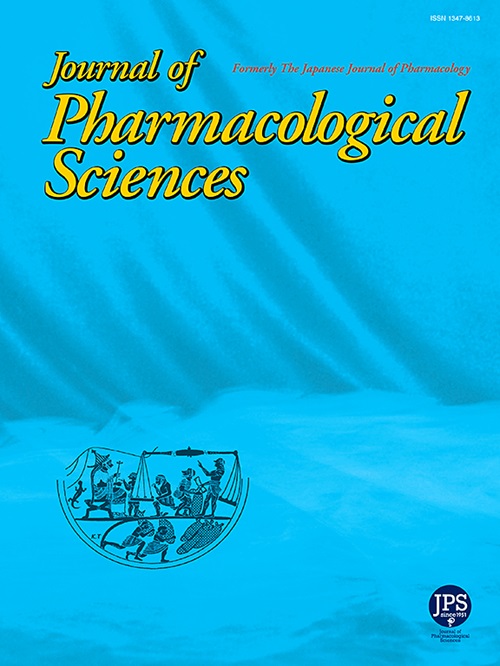Unravelling the effects of specific ingredients of kamishoyosan in reducing aggressive biting behavior in chronically isolated mice to inanimate objects
IF 2.9
3区 医学
Q2 PHARMACOLOGY & PHARMACY
引用次数: 0
Abstract
Kamishoyosan (KSS) is a well-known traditional Japanese herbal medicine used to treat psychiatric symptoms, such as irritation. We previously reported that KSS decreases mouse aggressive biting behavior (ABB) to inanimate objects using the Aggression Response Meter, however, it was not revealed which ingredient of KSS is effective. In this study, we used real-time reverse transcriptase (RT) PCR to investigate the mRNA expression of 5-HT-related genes in SH-SY5Y cells cultured in a medium containing the ten individual herbal medicines in KSS. The cells treated with shakuyaku showed increase of tryptophan hydroxylase mRNA expression, whereas those cultured in a medium containing botanpi showed decreased monoamine oxidase A and B mRNA levels. We investigated the ABB of mice administered with Paeonia lactiflora (shakuyaku) or Paeonia suffruticosa (botanpi). We also examined the gene expression in cells treated with paeoniflorin (PF), a main active component in shakuyaku, and the ABB of PF-treated mice. We found that shakuyaku or PF administration reduced ABB in male and female mice, whereas botanpi treatment mitigated ABB only in males. WAY-100635, a 5-HT1A receptor antagonist, abolished ABB-reducing effect of shakuyaku and botanpi. These results suggest that shakuyaku and botanpi are activate ingredient to reduce ABB through activation on serotoninergic neurotransmission.
揭示神生糖特定成分在减少长期隔离小鼠对无生命物体的攻击性咬伤行为中的作用
神生草山(KSS)是一种著名的日本传统草药,用于治疗精神症状,如刺激。我们以前报道过KSS通过攻击反应量表降低小鼠对无生命物体的攻击咬伤行为(ABB),但是没有揭示KSS的哪个成分是有效的。在本研究中,我们使用实时逆转录酶(RT) PCR研究了在含有KSS中10种单方中草药的培养基中培养的SH-SY5Y细胞中5- ht相关基因的mRNA表达。色氨酸羟化酶mRNA表达量增加,而单胺氧化酶a和B mRNA表达量减少。我们研究了给药白芍(shakuyaku)或白芍(Paeonia suffruticosa)小鼠的ABB。我们还检测了经芍药苷处理的小鼠细胞中的基因表达和经芍药苷处理的小鼠的ABB。我们发现,药酒或PF在雄性和雌性小鼠中减少了ABB,而植物提取物只在雄性小鼠中减轻了ABB。WAY-100635是一种5-HT1A受体拮抗剂,能有效地消除药酒和植物提取物对abb的降低作用。上述结果表明,中药汤和植物提取物是通过激活血清素神经传递来降低ABB的活性成分。
本文章由计算机程序翻译,如有差异,请以英文原文为准。
求助全文
约1分钟内获得全文
求助全文
来源期刊
CiteScore
6.20
自引率
2.90%
发文量
104
审稿时长
31 days
期刊介绍:
Journal of Pharmacological Sciences (JPS) is an international open access journal intended for the advancement of pharmacological sciences in the world. The Journal welcomes submissions in all fields of experimental and clinical pharmacology, including neuroscience, and biochemical, cellular, and molecular pharmacology for publication as Reviews, Full Papers or Short Communications. Short Communications are short research article intended to provide novel and exciting pharmacological findings. Manuscripts concerning descriptive case reports, pharmacokinetic and pharmacodynamic studies without pharmacological mechanism and dose-response determinations are not acceptable and will be rejected without peer review. The ethnopharmacological studies are also out of the scope of this journal. Furthermore, JPS does not publish work on the actions of biological extracts unknown chemical composition.

 求助内容:
求助内容: 应助结果提醒方式:
应助结果提醒方式:


